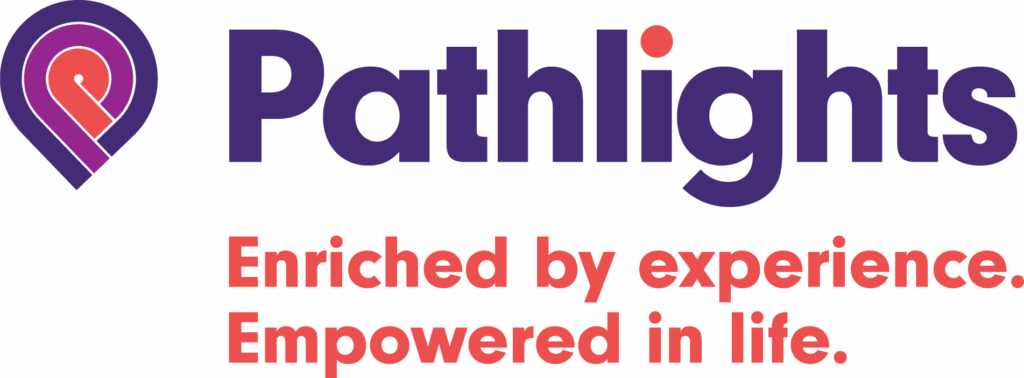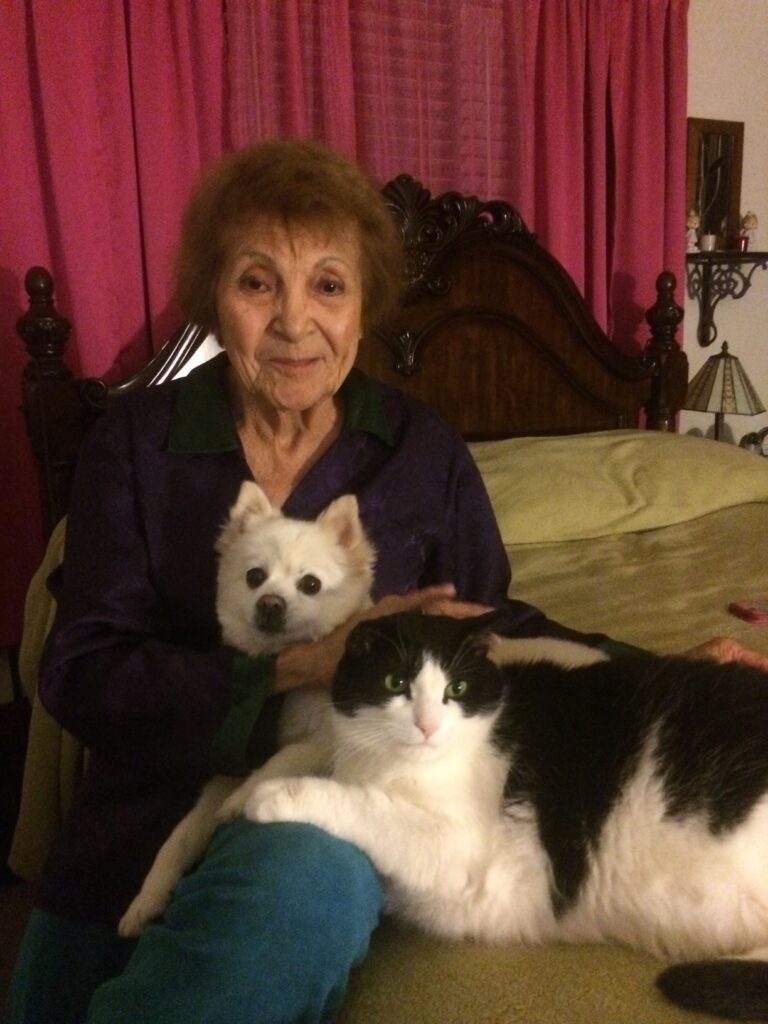Daisy of Oak Lawn was strong for her mom Esther and says her mom was strong for her. As a family caregiver, she cared for her mom in their two-flat building where they enjoyed joint living space since 2012. This proved itself to be an ideal living arrangement after her mom was diagnosed with Alzheimer’s Disease at the age of 91. Esther, 94 years young, passed away peacefully at home last August. Respite, says Daisy, made it possible for her to keep active and remain capable of providing her mom care 24/7. “Pathlights’ Respite program was a sanity saver,” she adds.
Esther was “a force to be reckoned with,” says Daisy. She was strong emotionally, mentally and physically. But, at her 90th birthday celebration, the family could see her starting to withdraw and she complained of being dizzy. After many doctor visits, consultation with specialists, and tests, the results was an Alzheimer’s diagnosis.
Fortunately, Daisy and Esther’s housing arrangements made caregiving a bit easier, and Daisy was in constant motion from her second-floor unit to mom’s first floor unit. In 2019, Daisy’s retirement plans went into high gear, and she left her career as an executive assistant with the security and fraud investigation department at a major financial institution to put her skills to work as Esther’s full-time caregiver. Discovering Pathlights’ Respite program and services was important. In one short year, Esther’s motor and cognitive skills were deteriorating quickly so safety-proofing the home was the number one priority. She removed sharp objects, installed door locks, made stove knobs inaccessible, lowered Esther’s bed, used caution with floor coverings, and, due to silent seizures, supported her mom often when walking.
Daisy is organized and a great planner. She knew that caring for herself and staying engaged with her own activities was critical. She needed help and she accepted it. She signed up for Pathlights’ free, nine-week course “Caregiver Stress-Busting Dementia Program” and joined the virtual “Caregivers Connecting” monthly support group. And she welcomed Respite caregivers into the home so she could keep attending outings she loved: fun times with friends and family, monthly meetings and social events with the motorcycle association, the Elks and the American Legion Post 1160 Auxiliary.
As Esther’s disease progressed, she reverted to speaking only in Spanish. Daisy says their Spanish-speaking Respite caregiver Laura was a blessed angel. “Laura and mom hit it off right away so that gave me great comfort and made it easier to take a little break from the day-to-day caregiving duties.”
Despite the challenges of memory loss, Daisy said that aging in place at home allowed Esther to be safe and comfortable while also being able to continue nurturing and protecting her beloved Pomeranian dog and guardian cat who stood vigil by her side to the very end. “She was a Mamacita/Mama, Abuelita/Grandmother, Hermana/Sister, Tia/Aunt, Amiga/Friend, and she recognized she was in her home surrounded by friends and family who were in her life’s journey and in her circle of love.”
Daisy says she benefited tremendously from the wisdom of friends and advice from the support group. She focused on remaining calm, taking a cue from her daughter-in-law who is a composed and patient nurse. And she put these three great ideas into practice to make the time with her mom as smooth as possible.
- Activities to stay engaged. Daisy knew her mother needed a purpose, so she gave her something to do. She kept a laundry basket full of towels nearby that her mom could easily fold. “You can’t mess it up and this role helped her feel she was still contributing. And I always had folded towels!”
- The notebook. One notebook became “the Dos and Don’ts of Mom Care” – a central guidebook on everything related to Esther and her care. “This life-altering disease meant there just wasn’t time for little scrap pieces of information everywhere. So, I jotted down everything in this one place — instructions, observations, doctors’ comments, appointments, research, facts, memories, milestones, questions and a place to write the answers.” She used it to communicate with herself and others, leaving the most current page open for visitors to add information when she was away. The Respite caregiver would add things Esther ate or didn’t eat and keep a record that Daisy could check when she returned home. When Daisy’s brother called from his home out of town, Daisy could quickly pull out the notebook and provide a bit more detail when he asked, “how’s mom doing?” The notebook became even more valuable after Esther died. “As a caregiver, some days can just spill into one another, and you don’t recall the specifics. Capturing life’s bits and pieces help you keep perspectives in focus. And when your loved one departs for eternal rest, it serves as a blueprint to express a meaningful, respectful obituary or eulogy. I continue to refer to often to remember that time.”
- The Kitty Cat Lounge. Daisy converted her three-car garage in 2014 into a fun, casual lounge complete with comfy chairs, music and a bar, which in 2020 served as the ideal gathering place to maintain social distance and get fresh air during the pandemic. This became an essential escape – physically and mentally – for Daisy and friends as her mother’s disease progressed. “It was an easy place to entertain without bothering mom as she was sleeping and yet near enough for frequent trips inside to watch and care for her. My friends loved mom and they served as “extra eyes” on her. She enjoyed their company and would sit in the lounge for hours with us and her little Pomeranian on her lap.”
Daisy reminds family caregivers they need to give themselves permission to seek and encourage support for their circles of family and friends. “It’s a healing process and educational for everyone because so many people will find themselves in that same caregiving role.” She adds, “It’s scary all alone. Everyone needs friends and something like the Kitty Cat Lounge. I tell everyone – if the garage door is open, stop in!”
Caregiving can take its toll and it’s important you give yourself a break. Pathlights’ Respite program provides a much-needed breather for informal caregivers, while offering temporary care for an older adult. Respite is available seven days a week and can be used for as little as three hours, an entire day, or even several days in a facility when an older adult requires 24-hour care and cannot be left alone. Trained homemakers provide supervision, companionship, light meal preparation, and some personal care. No medical care or medications can be given. Call Pathlights at 708.361.0219 to learn more.


